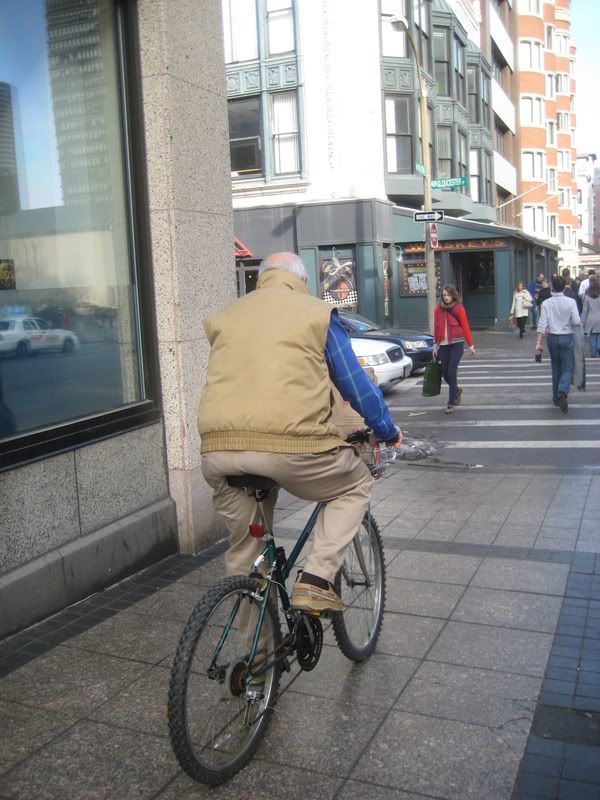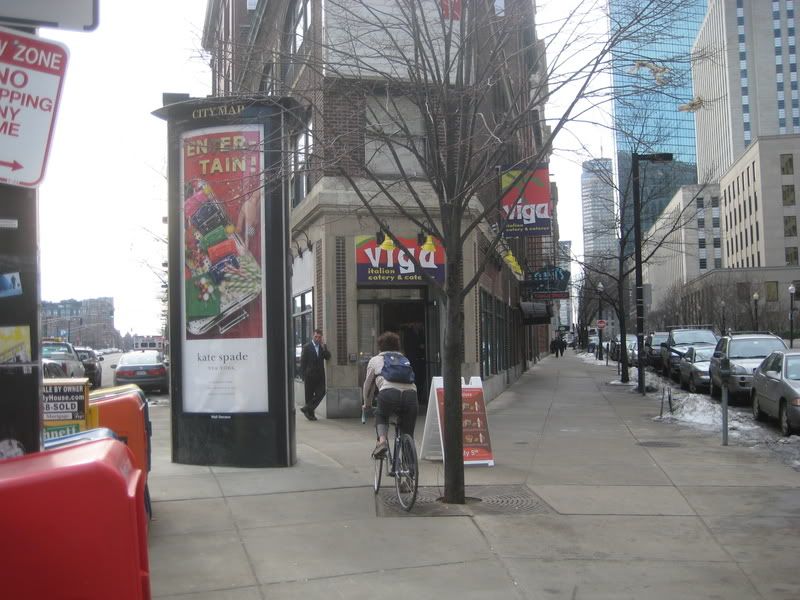Seeing something so anti urban in this forum, outside of Ned, is saddening.
IMO the bike advocates are getting undue influence...I would point to the example above and the fight over the Mass Ave reconstruction in the south end as exhibits A and B. The Mass Ave stretch is no place for bikers. It is a major artery for traffic. Bikers with a lick of common sense should take adjoining side roads. And while I would like to see a bike lane accommodated over the BU bridge it should not come at the expense of a major vehicular bottleneck.
How are bikes getting undue influence? Boston installed the very first bike lane last year...2008!
I dont have the stats for the BU Bridge, but at the Longfellow bridge, 7-9% of traffic is on bikes. Are they getting 7-9% of the space? Do you think that perhaps by making it easier to bike, this can be replicated everywhere, and even increased?
How is mass ave not for bikes? EVERY city street is for EVERYONE. Why should cyclists take a longer route just because you feel that you deserve to drive 5mph faster?
You dont seem to understand the idea of induced demand. When comm ave was recently reduced from 3 lanes to two, there was absolutely no change in traffic. Cars drive slower, but there are no traffic jams. There are also more bikes then ever, signaling that some people have left their bikes at home.
cden4 is exactly right. Roads should be designed to accommodate pedestrians and bikes first.
They dont pollute. They dont kill. They increase health instead of decreasing it.
It is difficult to impossible and often times reckless to bike in Boston for about four months of the year. Snow and ice eat into quite a bit of the available road and parking space. In a perfect world we could redesign Boston like a simcity game and there would be ample space for bikes. Mass Ave in the South End is a very heavily traveled artery on which cars move at a high rate of speed. For the efficient flow of traffic in Boston this is necessary. I'm not a car advocate by nature. I think Congress Street should be narrowed dramatically. By and large I favor pedestrian oriented traffic planning. For this reason I can't stand the traffic pattern in the SBW. That said, in some situations cars must take priority.
No, its not difficult and especially not reckless to bike in Boston in the winter. During a storm? Sure, but its also not safe to drive.
If the road has been narrowed, guess what, its the cyclcists legal right to take over as much as space as they need. Have you ever walked around after a snowstorm? Every intersection is a nightmare, because the crosswalk is blocked by snow the plows have piled on. Its much easier to get around by bike.
" Mass Ave in the South End is a very heavily traveled artery on which cars move at a high rate of speed. "
Congrats, youve identified the problem. The sollution is to implement traffic calming. Add bike lanes, widen sidewalks, give transit priority. Right now mass ave is dangerous, making it faster is the worst thing you could do.
Why should cars take priority in some situations? They have the pike, they have storrow drive. Cars need to learn to coexist with everybody else. Driving is not a right.



